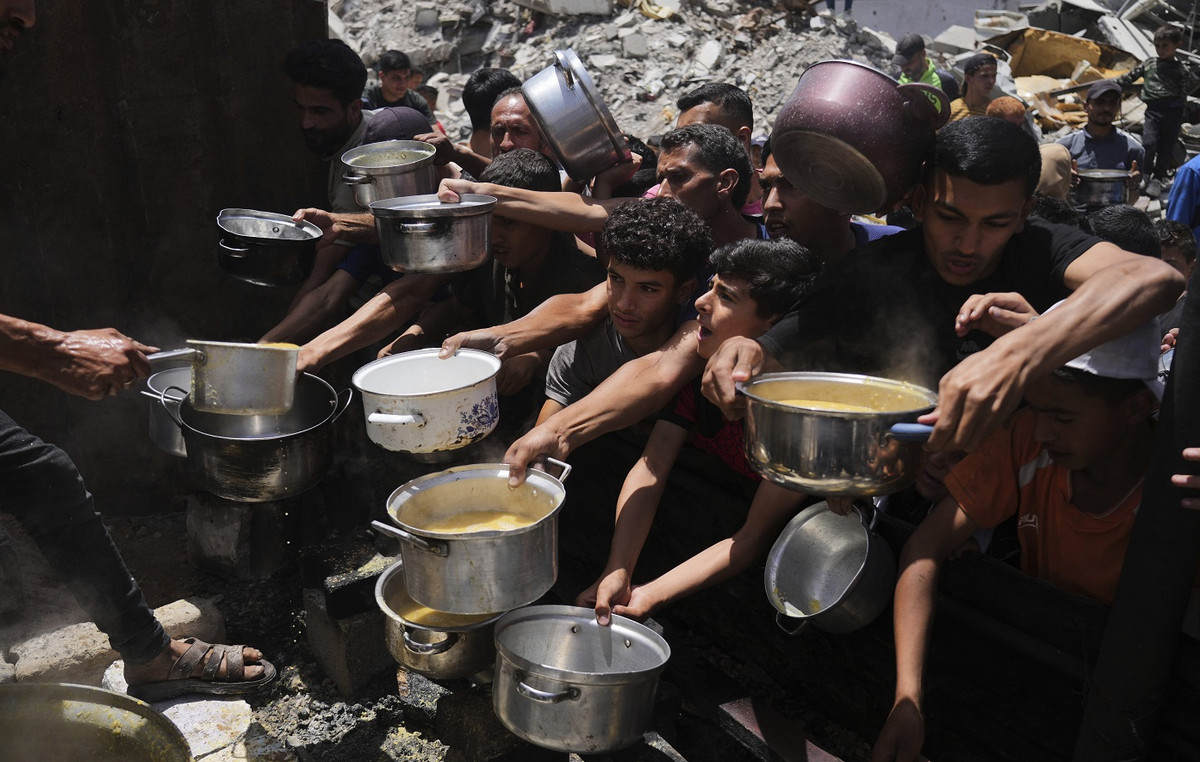On the day the United States and United Kingdom imposed sanctions on the import of oil and natural gas from Russia, the price of a barrel of oil closed over $129.
According to the Brazilian Association of Fuel Importers (Abicom), the lag in the price of a liter of gasoline in Brazil reached 30% and diesel, to 40%, this Tuesday (8).
This means that, following international parity, the liter of gasoline should be R$ 1.41 more expensive, rising from an average of R$ 6.57 to R$ 7.98, taking into account the latest bulletin from the National Agency. of Oil, Natural Gas and Biofuels (ANP).
In the case of diesel, which currently costs R$ 5.60 on average, the increase would take the value of a liter to R$ 8.14.
Given this scenario, the Brazilian government is studying measures to contain the rise in fuel prices. According to CNN analyst Caio Junqueira, a meeting at Palácio do Planalto to discuss solutions ended without definition this Tuesday (8).
For the president of the Brazilian Petroleum Institute (IBP), Eberaldo de Almeida Neto, the volatility of oil requires special measures from the Brazilian government to contain the impacts on consumers. However, he is against freezing prices.
“I don’t think the path is price intervention. You can even work on specific points for the most affected consumer. I will give the example of the cooking gas cylinder or the autonomous truck driver, this is totally pertinent”, she said.
“But price controls will lead to shortages because the country depends on imports to complete domestic production. It is impossible to buy more expensively, at market prices, and sell cheaper”, he declared. to CNN.
According to Almeida Neto, the lack of supply would result in an increase in fuel prices and inflation. He argues that price controls could harm the attraction of investments to Brazil, with effects on the exchange rate and the rise of the dollar, the standard currency for oil business.
“If you attract fewer investments, you don’t have the possibility of appreciating your currency”, he said.
Researcher Daniel Duque, from the Brazilian Institute of Economics at Fundação Getúlio Vargas (FGV/IBRE), points out that many countries have policies to smooth fuel prices, but, according to him, this does not happen in Brazil.
“The fact is that the price lag or the subsidy are the same thing. The lag is for Petrobras to pay the population the difference in price with the international market, and the subsidy is for the entire population to pay for those who consume”, he explained.
“The correct thing would be a smoothing policy in the right direction, when the price is high, the government subsidizes, and when it is low, it taxes more”, he defended.
Impacts of sanctions on Russia
The president of the Brazilian Petroleum Institute, Eberaldo de Almeida Neto, explains that, currently, Brazil needs to acquire fuel to meet national demand.
In the case of gasoline, imports are around 15%, an index that rises to 25% in relation to diesel.
Regarding the decision of US President Joe Biden, Almeida Neto points out that the United States buys 2% of Russian oil.
He points out that the ban on the product could generate a chain reaction if other countries follow the embargo, as 60% of Russia’s oil goes to Europe and another 35% to Asia.
“Some economic institutes make an analysis that for every million barrels not placed on the market, the price rises from US$ 14 to US$ 20”, he declared.
For Daniel Duque, a researcher at Fundação Getúlio Vargas, the shock between oil supply and demand will make the price of a barrel rise very high, as Russia holds 10% of the world’s exports and the United States is the largest importer.
“The United States will have to buy from other countries, and it will be a 10% lower offer than before. The price of brent was already rising even before the war. What we are going to see will be an elevation perhaps even close to the historic maximum. In June 2008, the price of a barrel reached US$ 160 in the monthly average”, says the specialist.
To CNN, Ibmec professor Marcio Sette says that, in addition to fuels, other oil-derived products will be impacted.
“Oil is at the base as a raw material to make a series of other products, such as rubber. As a result, other very different sectors, such as civil construction, are affected,” he declared.
“So, we have one more determining factor for global inflation. What happens is that we already have an inflation of agricultural and metallic commodities and, in addition to these, we have another inflation line for energy commodities, oil, gas”, he highlighted.
Daniel Duque also adds that the increase in the price of gasoline will cause an increase in the demand for ethanol in Brazil.
The fuel, extracted from sugarcane and corn, has been on a downward trend for the past six weeks.
Source: CNN Brasil
I am Sophia william, author of World Stock Market. I have a degree in journalism from the University of Missouri and I have worked as a reporter for several news websites. I have a passion for writing and informing people about the latest news and events happening in the world. I strive to be accurate and unbiased in my reporting, and I hope to provide readers with valuable information that they can use to make informed decisions.







